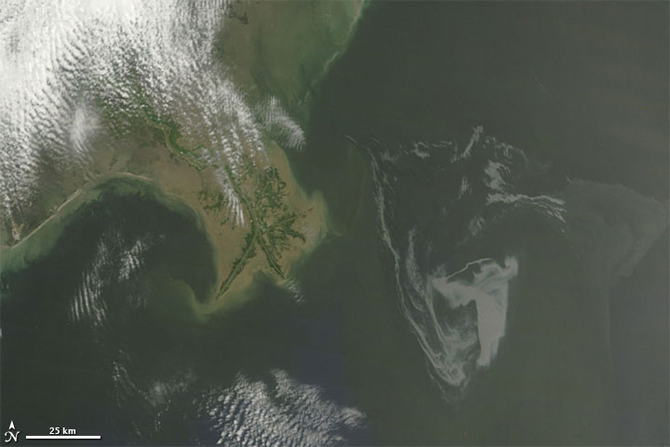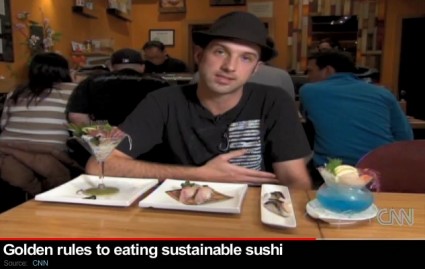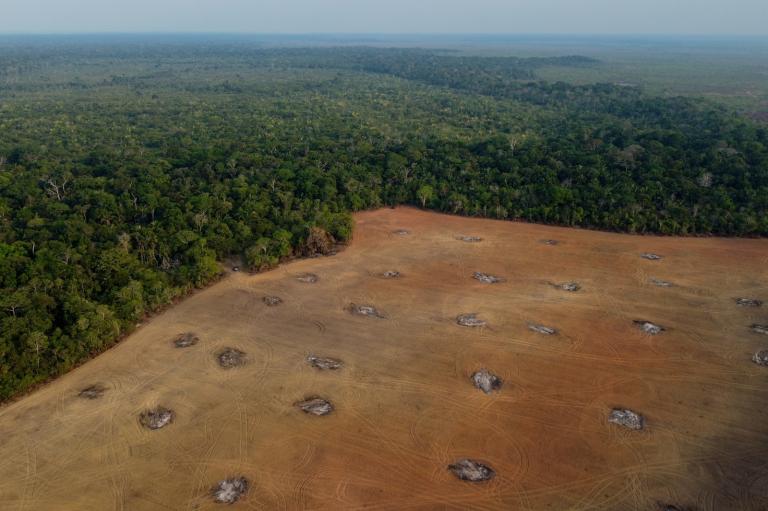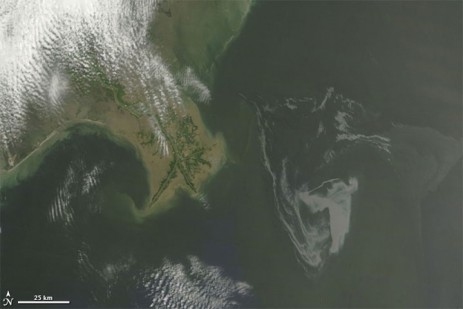 The Deepwater Horizon oil spill (the dull gray color southeast of the Mississippi Delta) seen by satellite on May 1 Photo: NASAAs if being bombarded with oil from below and chemical dispersants from above weren’t enough, the Gulf of Mexico also has to endure marketing rhetoric from a long-time tormentor: the corn industry.
The Deepwater Horizon oil spill (the dull gray color southeast of the Mississippi Delta) seen by satellite on May 1 Photo: NASAAs if being bombarded with oil from below and chemical dispersants from above weren’t enough, the Gulf of Mexico also has to endure marketing rhetoric from a long-time tormentor: the corn industry.
Industrial corn production is indisputably linked to the massive hypoxic “dead zone” that emerges in the Gulf every year. According to a 2008 peer-reviewed paper in the Proceedings of the National Academy of Sciences, “Nitrogen leaching from fertilized corn fields to the Mississippi-Atchafalaya River system is a primary cause of the bottom-water hypoxia that develops on the continental shelf of the northern Gulf of Mexico each summer.” And as corn production ramps up to satisfy government ethanol mandates, the amount of nitrogen flowing into the Gulf will likely increase by between 10 and 34 percent by 2022, the report states. That surging nitrogen load will make it “nearly impossible” to slow the growth of the already New Jersey-sized dead zone, the report concludes.
Meanwhile, how the Gulf’s two ecological calamities–the spill and the dead zone–will interact is anyone’s guess. Early indications are not encouraging, reports the Minnesota Post.
So you might expect the corn shills to maintain a respectful silence as BP’s oil disaster unfolds. Instead, the corn industry is ludicrously presenting itself as the Gulf’s salvation.
From the Nebraska Corn Board:
As those along the Gulf Coast work tirelessly to manage a disaster due to an offshore oil drilling accident, this tragic situation provides even greater impetus for others to move the ball forward on renewable fuels.
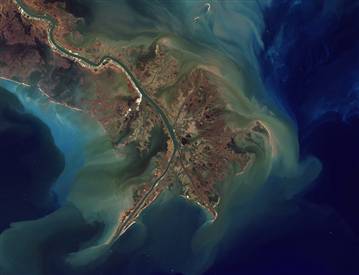 Um, Gulf? It’s the Corn Board calling. The guys who brought you the dead zone, pictured above, claim they have the answer to your troubles.Photo: NASAA Corn Board functionary added: “Those green fields [in the Midwest] are a tremendous reminder of the potential and promise of renewable fuels like corn ethanol, and will stand in stark contrast to the images we’ll see from the Gulf … It is renewable, very safe for the environment and does not have the lingering and environmentally damaging impact of oil.”
Um, Gulf? It’s the Corn Board calling. The guys who brought you the dead zone, pictured above, claim they have the answer to your troubles.Photo: NASAA Corn Board functionary added: “Those green fields [in the Midwest] are a tremendous reminder of the potential and promise of renewable fuels like corn ethanol, and will stand in stark contrast to the images we’ll see from the Gulf … It is renewable, very safe for the environment and does not have the lingering and environmentally damaging impact of oil.”
(How can a “renewable fuel” command up such titantic amounts of nitrogen synthesized from natural gas and mined phosphorous — so much of which ends up in the Gulf?)
On Twitter, industry publicists are also using the Gulf calamity as a prop to boost corn-based fuel, reports Dan Mitchell on The Big Money.
It’s a brazen move, like a con man helping a victim of a brutal mugging stand so he can pick what’s left of his pockets. Besieged ecosystems like the Gulf need real protection, not opportunistic rhetoric from industries that contribute to their destruction.
